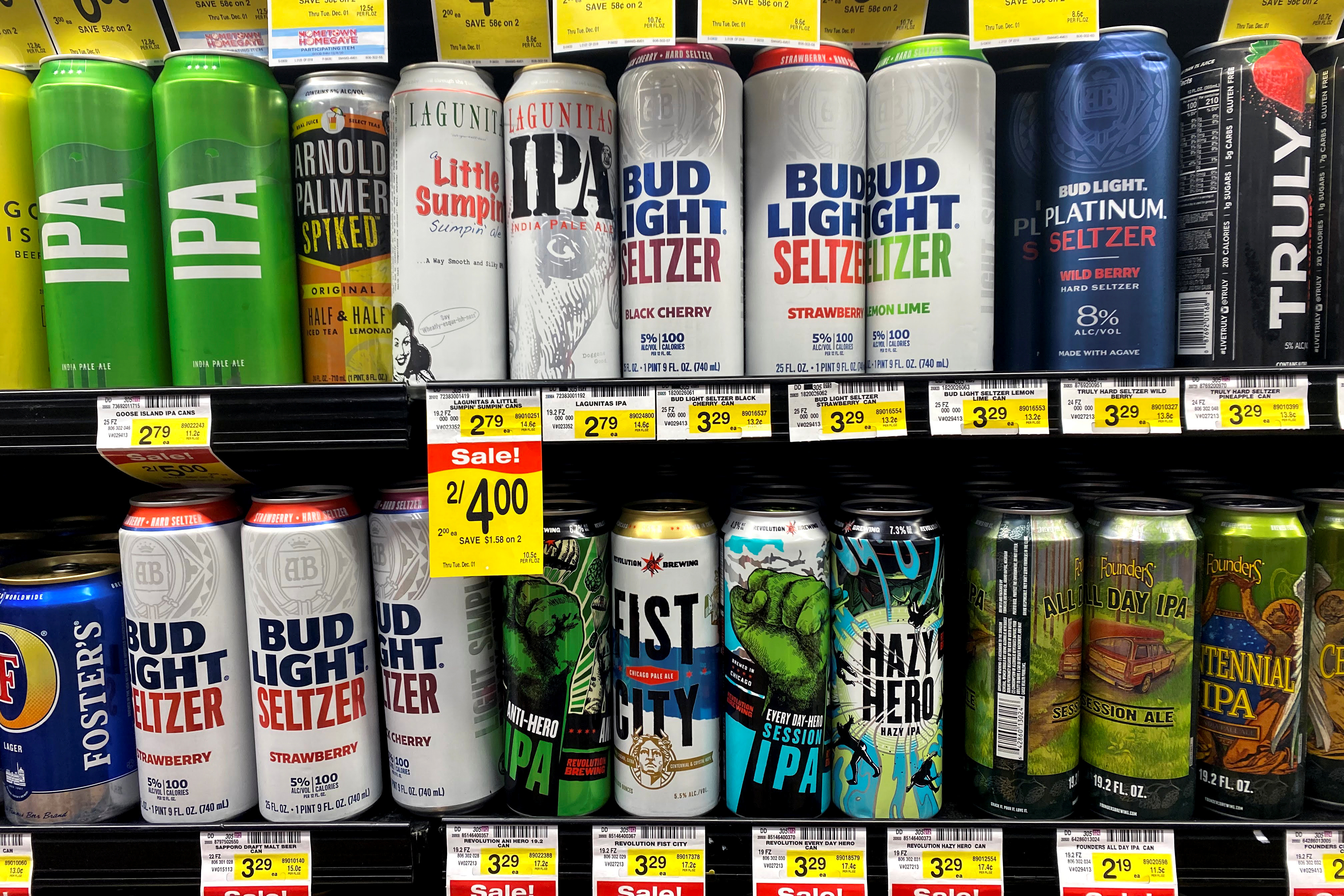[ad_1]

Cans of AB InBev’s Bud Light hard seltzer are displayed in a fridge in Jewel-Osco supermarket in Chicago, Illinois, U.S. October 21, 2020. Picture taken October 21, 2020. REUTERS/Richa Naidu/File Photo Acquire Licensing Rights
Oct 31 (Reuters) – Global brewers like Anheuser-Busch Inbev (ABI.BR) are set to benefit from better profit margins next year, analysts and investors say, because price hikes are unlikely to be reversed despite cost pressures easing.
AB Inbev, Carlsberg (CARLb.CO) and Heineken (HEIN.AS) all grew revenues in the third quarter even as consumers bought less beer, boosted by price increases and drinkers opting for more expensive brews.
Now, analysts and investors say the companies could see a margin increase in 2024, with the high costs of certain raw materials set to ease in some markets but brewers saying they do not expect to reduce beer prices.
Heineken’s Chief Financial Officer Harold van den Broek said last week there was “low risk” of the brewer having to roll back prices next year.
Carlsberg took a similar stand. “We’re not planning any price reductions anywhere,” its CEO Jacob Aarup-Andersen also told journalists after its third-quarter results on Tuesday.
The brewer was instead aiming for further price increases in 2024, with some costs still rising, he said.
While they face a delay in cost relief due to hedging, margins should now have hit their trough and brewers can start to rebuild them to historical levels, Tom O’Hara, portfolio manager at Janus Henderson, said.
AB InBev’s gross margin has fallen from almost 62% in the first half of 2019 to just under 54% in the first half of this year. Heineken’s first-half operating profit margin stood at 15.6% in the first half of 2019 versus 13.4% this year.
“Margin expansion should come through quite strongly next year,” continued O’Hara, whose fund holds stocks in AB InBev.
This makes brewers relatively attractive versus other consumer goods firms, who are coming under pressure from customers and investors to moderate prices, he said.
DIFFERING DYNAMICS
“Once one of the big three names have lifted their prices, they usually never give it back,” agreed Moritz Kronenberger, portfolio manager at Germany’s Union Investment, which holds shares in the European brewers.
The companies should enjoy decent margin expansion within the next 12-18 months, he continued.
Prices of aluminum and wheat have both fallen from highs in 2023 and brewers can expect broad relief from cost pressures next year, Bernstein analysts said in a note last week.
Though, they continued, there remains a wide degree of variation on prices across different commodities and regions.
Heineken’s van den Broek agreed, telling investors that the dynamics were different across markets, with the risk of price rollbacks highest in Europe.
“In the end it will be a question of how the competitive landscape evolves market by market,” said Johan Hastroem, portfolio manager at Finland’s Sp-Fund Management Company.
Brewers have more leverage in markets where they are more dominant, such as AB InBev in Mexico or Brazil, he said.
Reporting by Emma Rumney, Jacob Gronholt-Pedersen and Olivier Sorgho; Editing by Matt Scuffham and Jan Harvey
Our Standards: The Thomson Reuters Trust Principles.
[ad_2]
Source link
